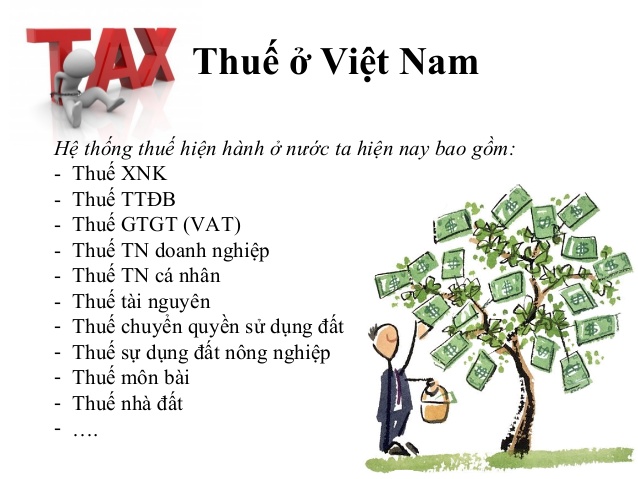Le Thi Quynh Anh 04

Le Thi Quynh Anh 04
In our opinion, Hanoi is definitely an innovative city and has great potential to become more and more innovative in the future. We can easily find the innovation in many fields. In terms of innovation companies, we have around over 200 start-ups in different sectors such as: Foody (Food & Beverage), Topica (Education), MoMo (Individual Finance), etc. We have incubators like FIIS, HubIT, 5Desire. We have creative co-working space as Hanoi Hub, Vuon. Moreover, in education, we also have innovative universities and projects like: USTH, MPIE, etc. However, Hanoi still has many things that can be changed to be more innovative. We can have better innovative environment with the good guidance and control from government. All the start-ups and entrepreneurs can have more support in finance with investment from banks and venture capitalist inside Hanoi, not just from foreign investment. We can consider Ha Noi as an innovative city but it is just at the beginning of the innovation process. We still need to invest more both in finance and human resource to push up all the innovative projects and ideas in the future. Therefore, all the stakeholders need to be involved and together to make Hanoi become more innovative.
Group 3:
Team member:
Nguyen Hoang Nam: No 14
Hoang Thi Thai Ngan: No 15
Le Thi Quynh Anh: No: 04
Nguyen Hong Hanh: No 07
Nguyen Mai Huong: No 09
Nguyen Thu Ha: No 06
Nguyen Hoang Long: No 13
https://www.britishcouncil.vn/sites/default/files/social-enterprise-in-vietnam-concept-context-policies.pdf
Name: Hoang Thi Thai Ngan 015
SUMMARY
Social Enterprises have been formed from social initiatives, based on the need to address specific social issues of the community and led by entrepreneurial spirit of the founders. This unique dynamism and dynamic character leads to a public perception of the dynamic development of social enterprises. Up to now, nearly 200 organizations in Vietnam are considered to have attached the full features of social enterprises; the pioneering social organization was established in 1990, however, the concept of social enterprises is still very new in Vietnam.
Social enterprises are often recognized as “hybrid” models between two types of non-governmental organizations, non-profit organizations and enterprises. In fact, the Social Enterprise model can be applied to different types of organizations with different legal status, such as NGOs, limited companies, share companies, cooperatives, foundations, unions.
In the period before “Doi Moi”, Vietnam already had a number of models that could be regarded as social enterprises, which were cooperatives providing jobs for people with disabilities. After 1986, the renewal and open-door policy of the development within and outside the country.
Social enterprises in Vietnam face many difficulties due to limited public awareness official recognition from the state, lack of clear legal regulations, limited human resources, accessibility capital, management skills, community cohesion, as well as a system of intermediaries to provide support services and networking …
Social enterprises can help the Government achieve social goals. The promulgation of the law establish legal framework, formally recognize and issue specific policies to encourage and supporting social enterprises, as well as institutionalize the implementation of such policies is extremely necessary.
Personal analysis
There are four development trends in this article and I found NGOs trend is really interest. It associate with business arms to give more social value.
REACH is a local, VNese, non-government organization which was established in 2008, specializing in vocational training and employment for VN’s most disadvantage youth. They use an innovative, highly pragmatic and effective training model. In 2016, they have trained over 1000 students, with nearly 90% of their graduates obtaining and keeping a stable job within 6 months.
 Image source: https://get.google.com/albumarchive/106727892139902648740/album/AF1QipPllb9up_Y3jgC1l1Niahj2Ae4mjWScciNaV6nj/AF1QipO64OespGgPadIQeMC0fyNFRYLcf2Rmj93QmoTU?source=pwa#6355623479793482706
Image source: https://get.google.com/albumarchive/106727892139902648740/album/AF1QipPllb9up_Y3jgC1l1Niahj2Ae4mjWScciNaV6nj/AF1QipO64OespGgPadIQeMC0fyNFRYLcf2Rmj93QmoTU?source=pwa#6355623479793482706


As we all know, traffic congestion in Hanoi is a common problem. That makes all the people in Hanoi feel very tired.
Every morning, students also have to go to school during peak hours and not every school has a shuttle bus for their students. High school and college students can go to school by bike or bus, but elementary and kindergarten students still need their parents to pick them up. This leads to the loss of parental time and contributes to increased congestion.
From this reality, I came up with the idea of setting up a taxi company to take students to school. The taxi company will sign a transfer contract of 3-5 students or more living close to each other and studying in close proximity. This is very useful, especially in crowded condominiums.
This service is really safe, convenient and cost effective, I believe there will be many supporters
Reference lists: https://baotintuc.vn/xa-hoi/dich-vu-dua-don-tre-dat-so-20130617072647300.htm
Writer of summary – Le Thi Quynh Anh (No:04)Na
 That article is about the current taxes in Viet Nam: Taxes are a major source of revenue for the state budget. In Vietnam, there are more than 10 taxes with different tax rates. In fact, there are areas in which businesses have suffered from 12 to 15 taxes and fees, resulting in reduced contributions to the state budget. At the same time, Vietnam is one of the countries with income from people on the total income of the society is very high compared to other countries with the same level of income and development level. Together with other economic policies, tax policies can become a tool to support domestic businesses as well as attract international investment. In other words, taxes can become a “competitive tool” at the government level. The government will have preferential tax policies for sectors, occupations, sectors and objects that are encouraged to develop through different taxes or rates.
Therefore, when we set up a business, we need not only to thoroughly research economic policies and laws but also to thoroughly research tax policies to take advantage of and exploit the incentives.
For example, when we want to implement an agricultural project, we will consider high-tech agriculture for export. In this area, we will enjoy preferential value added tax, corporate income tax, natural resource tax, etc. We also enjoy preferential interest rates from banks for this field.
In addition, each country will have different tax policies. In the integration period, many companies earn high profits through their subsidiaries established in the “tax haven” and investment back into Vietnam, profit earned them transferred to the company located in the country level. Low taxes to “spleen” much higher taxes if left in Vietnam.
Finally, the law sometimes has a loophole and tax law is no exception. If the company understands the tax law, it will increase profits by saving the maximum amount of remittances into the state budget.
Reference source: https://www.google.com.vn/search?q=c%C3%A1c+lo%E1%BA%A1i+thu%E1%BA%BF+%E1%BB%9F+Vi%E1%BB%87t+nam&rlz=1C1EJFA_enVN782VN782&source=lnms&tbm=isch&sa=X&ved=0ahUKEwiqj6bp1pLZAhVIL48KHYL0AOwQ_AUIDCgD&biw=1366&bih=662#imgrc=Pkmb84VypH2FtM:
Kết thúc cuộc trò chuyện
|